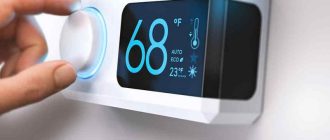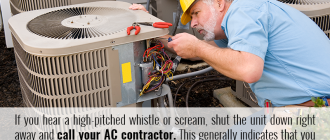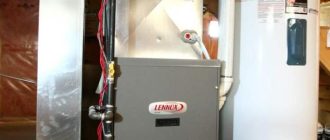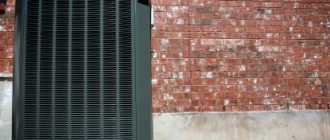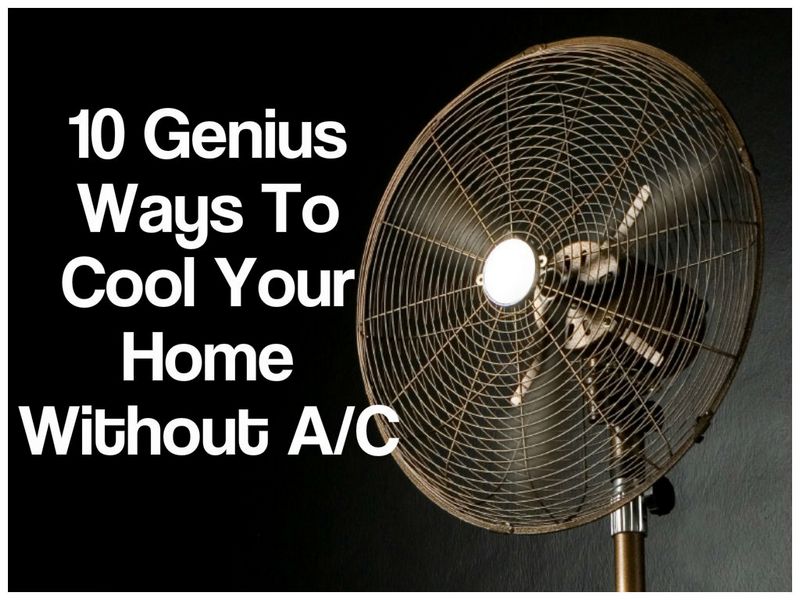
What’s the Matter When an AC System Takes Too Long to Cool Your House?
Are you tired of waiting for your air conditioning system to cool down your house? It can be frustrating, especially during hot summer months. There are several reasons why your AC system may be taking too long to cool your house, and it’s important to address these issues to ensure the comfort of your home.
One possible reason for the slow cooling could be a dirty or clogged air filter. When the air filter is dirty, it restricts the airflow and reduces the efficiency of the system. This means that the AC unit has to work harder and longer to cool down the house. Regularly replacing or cleaning the air filter can help improve the cooling speed of your AC system.
Another possible cause of the slow cooling may be low refrigerant levels. Refrigerant is responsible for absorbing the heat from the air and cooling it down. If the refrigerant levels are low, it will take longer for the AC system to cool the house. This could be due to a leak in the system, which should be addressed by a professional technician to prevent further damage.
In some cases, the size of the AC unit may not be suitable for the size of your house. An undersized unit will struggle to cool down a large space, resulting in longer cooling times. On the other hand, an oversized unit may cycle on and off frequently without properly cooling the house. Consulting with a professional HVAC technician can help you determine the right size unit for your home.
These are just a few of the possible reasons why your AC system may be taking too long to cool your house. By addressing these issues and seeking professional help when needed, you can ensure that your AC system operates efficiently and cools your home in a timely manner.
Common Issues with Your AC System
Having trouble with your AC system? Here are some common issues that may be affecting its performance:
- Dirty air filters: Dirty air filters can restrict airflow and reduce the efficiency of your AC system. It is important to regularly clean or replace your air filters to ensure good airflow and cooling.
- Refrigerant leak: A refrigerant leak can result in insufficient cooling. If you notice that your AC system is not cooling as it should be, it is possible that there is a refrigerant leak. It is best to contact a professional HVAC technician to identify and fix the leak.
- Faulty thermostat: A faulty thermostat can cause your AC system to malfunction. If your thermostat is not accurately reading the temperature or is unresponsive, it may need to be replaced.
- Blocked condenser unit: The condenser unit, located outside your house, can become blocked by debris such as leaves, dirt, or vegetation. This can restrict airflow and decrease cooling efficiency. Regularly clean the area around the condenser unit and remove any obstructions.
- Lack of regular maintenance: Regular maintenance is essential for the optimal performance of your AC system. Neglecting regular maintenance can lead to issues such as dirty coils, worn-out parts, or clogged air ducts, which can all impact cooling efficiency.
- Inadequate insulation: Poor insulation in your house can contribute to heat gain and loss, making it harder for your AC system to cool effectively. Properly insulating your home can help improve the efficiency and performance of your AC system.
If you are experiencing any of these common issues with your AC system, it is recommended to contact a professional HVAC technician for proper diagnosis and repair. Regular maintenance and timely repairs can help ensure that your AC system cools your house efficiently and effectively.
Insufficient Refrigerant Levels
Inadequate levels of refrigerant can cause your AC system to take too long to cool your house. Refrigerant is a chemical that absorbs and releases heat as it circulates through the system. When there is not enough refrigerant in the system, it cannot efficiently absorb heat from your home, resulting in a slower cooling process.
There are several reasons why your AC system may have insufficient refrigerant levels:
- Refrigerant Leak: Over time, the refrigerant in your AC system can leak due to normal wear and tear, corrosion, or damage to the components. A refrigerant leak will result in decreased levels of refrigerant in the system, making it harder for your AC unit to cool your home.
- Improper Installation: If your AC system was not installed correctly, there may be issues with the refrigerant lines and connections. Poor installation can lead to refrigerant leaks or insufficient refrigerant levels.
- Inadequate Charging: When an AC system is initially installed or serviced, it needs to be properly charged with the correct amount of refrigerant. If the charging process was not done accurately, your AC system may have insufficient refrigerant levels.
If you suspect that your AC system has insufficient refrigerant levels, it is important to contact a professional HVAC technician to diagnose and resolve the issue. They can identify any refrigerant leaks, recharge the system with the correct amount of refrigerant, and ensure that your AC unit is operating efficiently to cool your house properly.
Remember, attempting to handle refrigerant-related issues on your own can be dangerous and may result in further damage to your AC system. It is best to leave it to the professionals who have the proper knowledge and equipment to handle refrigerant safely.
Inadequate Airflow
Inadequate airflow is one of the common reasons why an AC system may take too long to cool a house. This issue can be caused by various factors:
- Clogged air filters: Air filters in the AC system are designed to trap dust, dirt, and other particles to ensure clean air circulation. However, over time, these filters can get clogged with debris, hindering the airflow. When the airflow is restricted, the AC system has to work harder to cool the house, leading to inefficiency and a longer cooling time.
- Blocked vents and registers: If the vents and registers in your house are blocked or obstructed by furniture, curtains, or other objects, it can restrict the airflow. As a result, the cooled air cannot reach all areas of the house effectively, causing certain rooms to take longer to cool down.
- Faulty or undersized ductwork: The ductwork in your house plays a crucial role in distributing the cooled air from the AC system. If the ducts are damaged, poorly insulated, or undersized, it can lead to restricted airflow. Leaks or gaps in the ductwork can also result in air loss, reducing the efficiency of the cooling system and prolonging the cooling time.
- Dirty evaporator coil: The evaporator coil in the AC system is responsible for absorbing heat from the indoor air. However, over time, the coil can accumulate dirt and debris, reducing its ability to absorb heat effectively. This can result in inadequate cooling and longer cooling cycles.
To resolve the issue of inadequate airflow, it is recommended to:
- Regularly clean or replace the air filters to ensure optimal airflow.
- Ensure that the vents and registers are clear from any obstructions to allow proper air circulation.
- Inspect the ductwork for any leaks, damages, or insulation issues and have them repaired or replaced if necessary.
- Clean the evaporator coil periodically to remove any dirt or debris that may impede its efficiency.
By addressing the problem of inadequate airflow, you can help your AC system cool your house more efficiently and reduce the time it takes to achieve the desired temperature.
Dirty Air Filter
When your AC system takes too long to cool your house, one possible reason is a dirty air filter. The air filter in your AC unit plays a crucial role in maintaining clean and healthy indoor air quality.
Over time, the air filter accumulates dust, dirt, and other airborne particles, which can clog the filter and restrict airflow. When the airflow is restricted, it becomes harder for the AC system to cool the air effectively, resulting in longer cooling times.
Here are a few signs that indicate your air filter is dirty and needs to be replaced:
- Increased cooling time
- Reduced airflow from vents
- Visible dust or debris on the air filter
- More frequent cycling of the AC system
To prevent your air filter from getting dirty too quickly, it’s essential to regularly clean or replace it. The frequency of cleaning or replacement depends on factors such as the type of filter, the number of occupants in the house, and the presence of pets or smokers.
Here are some tips to keep your air filter clean and maintain the efficiency of your AC system:
- Check the air filter regularly, at least once a month.
- If the filter appears dirty or clogged, clean it if it’s reusable or replace it with a new one.
- Choose a high-quality air filter that is appropriate for your AC system and follow the manufacturer’s recommendations.
- Avoid running the AC system without an air filter, as this can allow dust and debris to enter the system and reduce its lifespan.
- Consider professional air duct cleaning to remove dust and debris build-up in the air ducts.
By keeping your air filter clean, you can improve the airflow in your AC system and reduce the time it takes to cool your house. Regular maintenance and proper care of the air filter will not only enhance the performance of your AC system but also promote better indoor air quality.
Faulty Thermostat
A faulty thermostat could be one of the reasons why your AC system takes too long to cool your house. The thermostat is responsible for detecting the temperature in your home and signaling the AC system to turn on or off accordingly. If the thermostat is not functioning properly, it may not accurately detect the temperature, resulting in inefficient cooling.
There are several signs that indicate a faulty thermostat:
- Inaccurate temperature readings: If your thermostat is showing incorrect temperature readings, it may not be able to accurately control the cooling cycles of your AC system.
- Unresponsive controls: If the buttons or knobs on your thermostat are unresponsive or difficult to use, it may indicate a malfunctioning thermostat.
- Frequent on-off cycles: A faulty thermostat may cause your AC system to turn on and off more frequently than necessary, resulting in inefficient cooling and increased energy consumption.
If you suspect that your thermostat is the culprit behind your slow-cooling AC system, there are a few troubleshooting steps you can take:
- Check the thermostat settings: Verify that the thermostat is set to the desired temperature and cooling mode.
- Replace the batteries: If your thermostat is battery-powered, low battery levels could affect its performance. Replace the batteries and see if it improves the cooling efficiency.
- Calibrate the thermostat: Some digital thermostats allow calibration to ensure accurate temperature readings. Consult the manufacturer’s instructions on how to calibrate your thermostat.
If these troubleshooting steps do not resolve the issue, it may be necessary to replace your thermostat. Contact a professional HVAC technician to assess the problem and recommend the appropriate solution.
Blocked Air Vents
One possible reason why your AC system takes too long to cool your house is because of blocked air vents. Air vents play a crucial role in distributing cool air throughout your home. If they are blocked or obstructed in any way, it can significantly impact the airflow and cooling efficiency of your AC system.
There are a few common causes of blocked air vents:
- Furniture or objects blocking the vents: Sometimes, furniture or other objects can accidentally be placed in front of or on top of air vents. This restricts the airflow and prevents cool air from reaching different areas of your home.
- Dusty or dirty air vents: Over time, air vents can accumulate dust, pet hair, and other debris. This can clog the vents and impede the flow of air. Regular cleaning and maintenance of your air vents can help prevent this issue.
- Closed or partially closed vents: It’s possible that the vents in certain rooms might have been closed or partially closed. This can happen when someone wants to direct more airflow to other areas of the house. However, this can disrupt the overall balance of the system and lead to longer cooling times.
If you suspect that blocked air vents are affecting the performance of your AC system, here are a few steps you can take:
- Inspect and remove any obstructions: Check all the air vents in your home and make sure no furniture or objects are blocking them. Move any obstructions and ensure that the vents are completely unobstructed.
- Clean the air vents: If you notice a significant amount of dust or debris on your air vents, use a vacuum cleaner or a soft brush to gently remove the buildup. Regularly cleaning your air vents can help maintain proper airflow and cooling efficiency.
- Ensure all vents are open: Double-check that all vents in your home are fully open. Make sure none of them are accidentally closed or partially closed. This will help optimize the airflow and temperature distribution throughout your house.
If despite these efforts, your AC system still takes too long to cool your house, it’s recommended to contact a professional HVAC technician. They can identify any underlying issues and provide the necessary repairs or adjustments to restore your AC system’s performance.
Incorrectly Sized AC Unit
One possible reason why your AC system takes too long to cool your house is that it is incorrectly sized for the space it is intended to cool. An AC unit that is too small for your home will struggle to cool it efficiently, while a unit that is too large may cycle on and off too frequently, leading to inefficient cooling and increased wear and tear on the system.
When your AC unit is incorrectly sized, it can result in several issues:
- Inadequate cooling: An undersized AC unit will struggle to cool your home adequately, especially during hot summer months. You may notice that certain areas of your house remain warm, even while the unit is running.
- Increased energy consumption: An AC unit that is too small for the space it is cooling will have to work harder and run for longer periods to reach the desired temperature. This can lead to increased energy consumption and higher utility bills.
- Short cycling: An oversized AC unit may cool the space quickly, but it can lead to short cycling. This is when the AC turns on and off frequently, which not only wastes energy but also puts unnecessary strain on the system.
- Premature wear and tear: Both an undersized and oversized AC unit can experience premature wear and tear. An undersized unit will be overworked and may have to run constantly, while an oversized unit may cycle on and off frequently, causing the components to wear out faster.
To avoid these issues, it is important to have a professional HVAC technician perform a load calculation to determine the correct size of AC unit for your home. The load calculation takes into account various factors such as the square footage of your home, insulation levels, the number of windows and doors, and the climate in your area.

By ensuring that your AC unit is properly sized for your home, you can maximize efficiency, improve cooling performance, and extend the lifespan of your system.
Leaky Ductwork
Leaky ductwork is a common issue that can cause your AC system to take too long to cool your house. Ductwork is responsible for distributing air throughout your home, and if it is leaking, it means that the cool air from your AC unit is escaping before it can reach its destination.
There are several reasons why ductwork might develop leaks. It could be due to poor installation, aging, or damage from rodents or other pests. Regardless of the cause, leaky ductwork can significantly impact the efficiency of your AC system and lead to higher energy bills.
When your ductwork is leaking, the cool air that is meant to cool your house is wasted. Instead of reaching the rooms in your home, the air escapes through the leaks in the ducts. This means that your AC system has to work harder and longer to cool your house, resulting in extended cooling times.
One way to determine if your ductwork is leaking is to inspect it visually. Look for any visible cracks, holes, or disconnected sections. You can also hire a professional to perform a ductwork inspection using specialized equipment to detect leaks that may be hidden from view.
If you discover that your ductwork is leaking, it’s important to have it repaired as soon as possible. A professional HVAC technician can seal the leaks using mastic or metal tape and ensure that your ducts are properly connected. This will help to improve the efficiency of your AC system and reduce the time it takes to cool your house.
Regular maintenance of your ductwork can also help to prevent leaks from occurring in the first place. Make sure to have your ducts inspected and cleaned on a regular basis to keep them in optimal condition. Additionally, sealing any gaps or cracks in your home’s ductwork can help to prevent air leakage and improve the overall efficiency of your AC system.
In conclusion, leaky ductwork is a common culprit behind AC systems taking too long to cool a house. By addressing and repairing any leaks in your ductwork, you can improve the efficiency of your AC system and reduce the time it takes to cool your home.
Inefficient Insulation
One possible reason why your AC system takes too long to cool your house is inefficient insulation. Insulation plays a crucial role in maintaining the desired indoor temperature and preventing the escape of cool air from your home.
When insulation is inadequate or worn out, cool air can escape through gaps, cracks, or poorly sealed areas in your walls, windows, doors, and roof. This escaping air not only affects the efficiency of your AC system but also leads to increased energy consumption and higher electricity bills.
To determine if inefficient insulation is the culprit, you can start by examining the insulation in your home. Look for signs of wear, damage, or missing insulation in areas such as attics, basements, crawl spaces, and exposed pipes.
Additionally, you can perform a thermal imaging test to identify potential areas of air leakage. A thermal imaging camera can help detect temperature differences and pinpoint areas where insulation may be lacking.
If you suspect inefficient insulation, it is advisable to consult a professional insulation contractor. They can assess your insulation needs and recommend the appropriate insulation material and techniques to improve your home’s energy efficiency.
Upgrading your insulation can help reduce the time it takes for your AC system to cool your house by preventing the escape of cool air and creating a more comfortable indoor environment. It not only improves the cooling efficiency but also reduces the strain on your AC system, leading to potential cost savings in the long run.
In conclusion, inefficient insulation is a common reason why your AC system may take too long to cool your house. By addressing insulation issues, you can improve the overall cooling efficiency of your home and create a more comfortable living environment.
Overworked Compressor
If your AC system takes too long to cool your house, one possible reason could be an overworked compressor. The compressor is a crucial component of your AC system that circulates refrigerant and facilitates the cooling process.
There are a few reasons why a compressor may become overworked:
- Dirty condenser coils: The condenser coils are responsible for releasing heat from the refrigerant, allowing it to cool down. If the coils are dirty or clogged with debris, the compressor has to work harder to achieve the desired cooling temperature.
- Low refrigerant level: The refrigerant is the substance that absorbs heat from indoor air and transfers it to the exterior. If there is a low refrigerant level, the compressor has to work longer to achieve the cooling effect, leading to longer cooling times.
- Restricted airflow: If the airflow in your AC system is restricted, the compressor has to work harder to push the cooled air throughout your house. This can be caused by dirty air filters, blocked vents, or obstructed ducts.
Over time, an overworked compressor can lead to further issues, such as compressor failure or reduced overall cooling efficiency. It is essential to address the underlying causes and provide maintenance to prevent further damage.
If you suspect that your compressor is overworked, it is advisable to consult a professional HVAC technician. They can inspect and diagnose the problem, clean the condenser coils, check the refrigerant levels, and ensure proper airflow to optimize your AC system’s performance.
Aging Equipment
One possible reason why your AC system takes too long to cool your house is aging equipment. Over time, the components of your AC system can become worn out or less efficient, which can result in reduced cooling capacity and longer cooling times.
The compressor, which is responsible for compressing and circulating the refrigerant, can wear out over time. This can lead to lower refrigerant levels and a decrease in cooling efficiency. Additionally, the evaporator coil and condenser coil can become dirty or clogged, reducing their ability to transfer heat effectively.
Another common issue with aging equipment is deteriorating insulation. The insulation in your ductwork or around the refrigerant lines can degrade over time, leading to heat loss and reduced cooling efficiency. This can cause the air that reaches your home to be warmer than desired, resulting in longer cooling times.
In some cases, the age of your AC system itself can be a factor. Older systems may have outdated technology and less energy-efficient designs compared to newer models. This can result in longer cooling times and higher energy consumption.
If you suspect that aging equipment is the cause of your AC system’s long cooling times, it may be worth considering an upgrade or replacing worn-out components. A professional HVAC technician can assess the condition of your equipment and provide recommendations for improvement.
Improper AC Maintenance
Proper maintenance is essential for your AC system to function efficiently and effectively. Neglecting regular maintenance tasks can result in your AC system taking too long to cool your house. Here are some common maintenance issues that can cause this problem:
- Clogged air filters: Over time, air filters can become dirty and clogged with dust, dirt, and other airborne particles. When this happens, the airflow is restricted, making it harder for your AC system to cool your house. Regularly cleaning or replacing your air filters can help improve the efficiency of your AC system.
- Dirty coils: The evaporator and condenser coils in your AC system can accumulate dirt and debris over time. This buildup reduces the cooling capacity of your AC system and can cause it to take longer to cool your house. Cleaning the coils regularly can help improve the performance of your AC system.
- Leaking refrigerant: If your AC system is low on refrigerant due to a leak, it will struggle to cool your house effectively. Low refrigerant levels can cause the evaporator coils to freeze up and reduce the airflow. It’s important to have any refrigerant leaks repaired and the system recharged to ensure optimal cooling performance.
- Blocked condensate drain: The condensate drain in your AC system is responsible for removing moisture from the air. If the drain becomes clogged with algae, mold, or other debris, it can lead to water backup and affect the cooling process. Regularly cleaning and maintaining the condensate drain can prevent this issue.
- Worn-out components: Over time, certain components of your AC system, such as the fan motor, belts, or bearings, can wear out and become less efficient. These worn-out components can affect the airflow and cooling capacity of your system. Regular inspections and maintenance can help identify and replace any worn-out parts.
Proper maintenance of your AC system is crucial for optimal cooling performance. Regularly cleaning or replacing air filters, cleaning coils, addressing refrigerant leaks, maintaining condensate drains, and replacing worn-out components can help prevent your AC system from taking too long to cool your house.
Environmental Factors
There are several environmental factors that can contribute to your AC system taking too long to cool your house. Understanding these factors can help you troubleshoot any issues and improve the efficiency of your AC system.
- Outdoor temperature: The temperature outside directly affects how quickly your AC system can cool your house. During extremely hot days, your system may struggle to keep up with the demand, resulting in slower cooling times.
- Humidity levels: High humidity makes it harder for your AC system to cool your house. Moist air retains heat more effectively, which means the system needs to work harder and longer to achieve the desired temperature.
- Air leaks: If there are air leaks in your house, cool air can escape while warm air can enter. This can put extra strain on your AC system and cause it to take longer to cool your home.
- Insulation: Poor insulation in your house can contribute to slower cooling times. Insufficient insulation allows heat to enter your home more easily and forces your AC system to work harder.
- Sunlight exposure: If your house receives direct sunlight for extended periods, it can significantly raise the temperature inside. This will require your AC system to work harder and take longer to cool your home.
- Size of the AC unit: If your AC unit is too small for the size of your house, it will struggle to cool effectively. An undersized unit will take longer to cool your home as it tries to compensate for the increased demand.
Considering these environmental factors and addressing any issues can greatly improve the efficiency and speed at which your AC system cools your house. It is recommended to consult with a professional HVAC technician for proper evaluation and maintenance of your AC system.
Inefficient Cooling Strategies
When your AC system takes too long to cool your house, it could be due to inefficient cooling strategies. Here are some common reasons why your AC system may not be cooling your house efficiently:
- Improper thermostat settings: If your thermostat is set too high, your AC system may not run enough cycles to cool your house effectively. Make sure to set your thermostat to a comfortable temperature.
- Insufficient insulation: Insufficient insulation in your home can lead to cool air escaping and warm air entering your living space. This can cause your AC system to work harder and take longer to cool your house. Check your insulation and ensure it is properly installed and sufficient.
- Dirty air filters: Dirty air filters can restrict airflow and reduce the efficiency of your AC system. This can result in longer cooling times. Make sure to regularly clean or replace your air filters to ensure optimal airflow.
- Leaky ducts: Leaky ducts can cause cool air to escape before it reaches your living space. This can lead to longer cooling times and decreased efficiency. Inspect your ductwork for any leaks and have them sealed or repaired.
- Inadequate AC system size: If your AC system is undersized for your home, it may struggle to cool your house effectively and take longer to reach the desired temperature. Consider having a professional assess your home’s cooling needs and upgrade to a properly sized AC system if necessary.
- Lack of maintenance: Neglecting regular maintenance for your AC system can result in decreased efficiency and longer cooling times. Make sure to schedule annual maintenance, including cleaning of coils and fins, to keep your AC system running efficiently.
By addressing these inefficient cooling strategies, you can help improve the cooling efficiency of your AC system and reduce the time it takes to cool your house.
Q&A:
Why is my AC system taking so long to cool my house?
There are a few possible reasons for your AC system taking a long time to cool your house. It could be due to clogged or dirty air filters, which restrict airflow and reduce the efficiency of the system. Another reason could be a refrigerant leak, which can cause the system to struggle to cool the air. Additionally, if the AC system is old or undersized for the size of your house, it may not be powerful enough to cool the space efficiently.
How often should I replace the air filters in my AC system?
It is recommended to replace the air filters in your AC system every one to three months, depending on factors such as the amount of dust and pet dander in your home. Clogged or dirty air filters can restrict airflow, making the AC system work harder and take longer to cool your house. Regularly replacing the filters will help maintain the efficiency of your AC system and improve its cooling performance.
Can I fix a refrigerant leak in my AC system myself?
Fixing a refrigerant leak in your AC system is not a DIY job and should be left to a professional HVAC technician. Handling refrigerant requires specialized knowledge and equipment. If you suspect a refrigerant leak, it is best to contact a licensed HVAC technician who can locate and repair the leak, as well as recharge the system with the correct amount of refrigerant. Trying to fix a refrigerant leak yourself can be dangerous and may lead to further damage to your AC system.
What should I do if my AC system is undersized for my house?
If your AC system is undersized for your house, meaning it is not powerful enough to cool the space efficiently, you may need to consider upgrading to a larger unit. An undersized AC system will struggle to cool your house, resulting in longer cooling times and reduced comfort. Contact a licensed HVAC professional who can assess your cooling needs and recommend the appropriate size and capacity of AC system for your house. Investing in a properly sized AC system will ultimately provide better cooling performance and energy efficiency.

